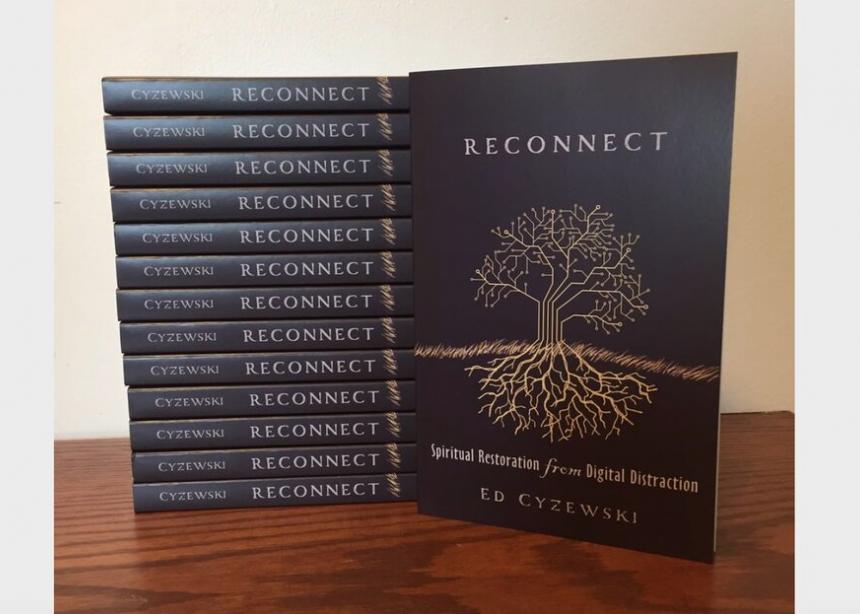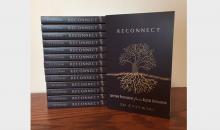Indiscriminate use of social media is bad for us, warns Ed Cyzewski. While technology is convenient and promises to make us more efficient and keep us in touch with more people, it actually harms our mental health and does little to foster true relationships. Smartphones and other devices also hinder our spirituality, mostly by consuming our time.
The answer is not to avoid social media, says Cyzewski, but to learn to live better with it. This means learning good habits of limiting time with social media, working at real relationships and nurturing our spirituality.
The author of Reconnect found himself constantly checking his smartphone and began to notice that his spiritual practices, as well as time with his family and other meaningful projects, were suffering. Cyzewski decided to pay closer attention to what was happening in his life. He began researching the effects of all this online time and found that modern technology is having a negative impact on society.
“Technology is intentionally designed to be addictive and immersive,” he writes, pointing out that some of the most insightful comments are coming from former executives at large tech companies like Google and Facebook. He quotes one former executive as saying that a smartphone with social media apps is “like a slot machine in your pocket.” These digital devices have created an expectation of constant stimulation.
The more people log on to social media, the more they feel isolated and inadequate, according to surveys of social media use. Cyzewski refers to a 2018 study that found “students who limited their use of Facebook, Instagram and Snapchat to 30 minutes a day for three weeks had significant reductions in loneliness and depression.” Social media is an easy place to turn for connections, but it is shallow and does not provide a satisfactory community.
Another danger of social media is disinformation. Many people find this a convenient way to access news, but the news feeds are influenced by bots designed to bring attention to stories that trigger emotions rather than stories that are balanced and accurate. Cyzewski mentions a Massachusetts Institute of Technology study that showed “false stories spread about six times faster than the true stories.” As well, the content that “gets the most engagement is often related to some kind of emotional reaction or conflict.”
As well as learning to limit digital distraction, Cyzewski encourages Christians to nurture their spiritual formation. He advocates for prayer, silence and meditating on Scripture. “By sitting in silence, releasing our thoughts gently and creating space for God, we can gain greater clarity through simple contemplative practices,” he writes.
Rather than “liking” a social post, Cyzewski promotes in-person interactions. He finds in his own life that a direct and personal text message, email or voice mail has more meaning than a Facebook response.
Most of all, he argues for the need to be aware of how much time can get sucked into apps, and he suggests detoxing if necessary. He also includes a “Starter guide for digital boundaries” and a “Starter guide for spiritual practices,” providing simple and practical steps to following his advice.
Although Cyzewski warns of the dangers of social media, he writes from a position of sympathy. He encourages readers to be aware of the pitfalls of digital distraction and to develop healthy spiritual habits, but he never assumes that tech devices should be avoided entirely. This book should appeal to readers interested in knowing how modern technology is shaping our society, or in learning practical ways to connect with God through contemplative prayer.
Further reading from our Fall 2020 Focus on Books & Resources:
New hymnal will be ‘part of the fabric of our lives’
COVID clean-up leads to inspiring discovery
‘The Daily Bonnet’ creator publishes book
Living at ‘home together’
Pastor channels love of stories into children’s books





Comments
None of this comes as a surprise to anyone over fifty. Some of the answers to online questions are so bad it’s surprising people would even take them seriously. I worked in tech many years and good things were achieved but Netflix really ... taking a break from it all.
Add new comment
Canadian Mennonite invites comments and encourages constructive discussion about our content. Actual full names (first and last) are required. Comments are moderated and may be edited. They will not appear online until approved and will be posted during business hours. Some comments may be reproduced in print.